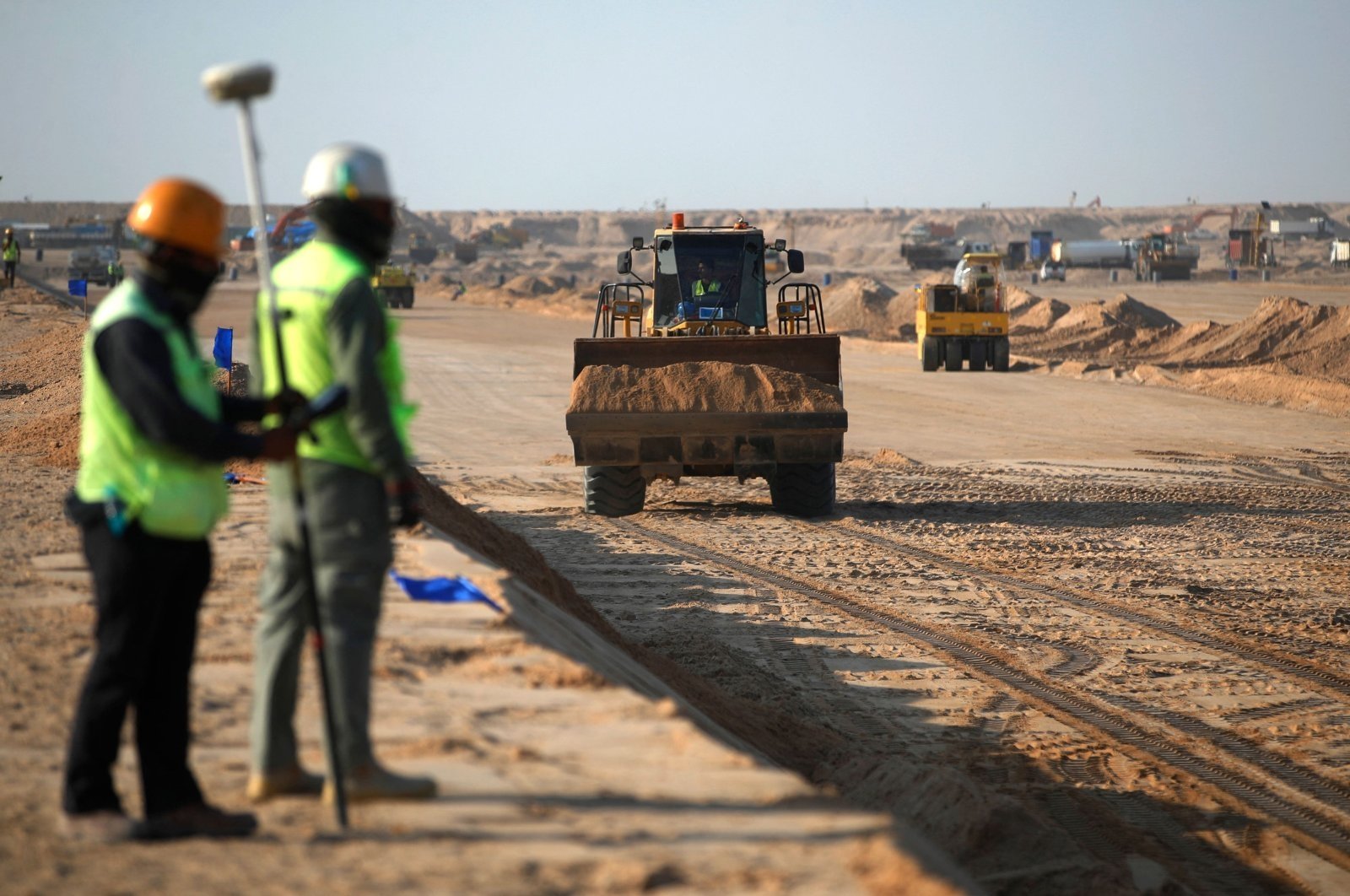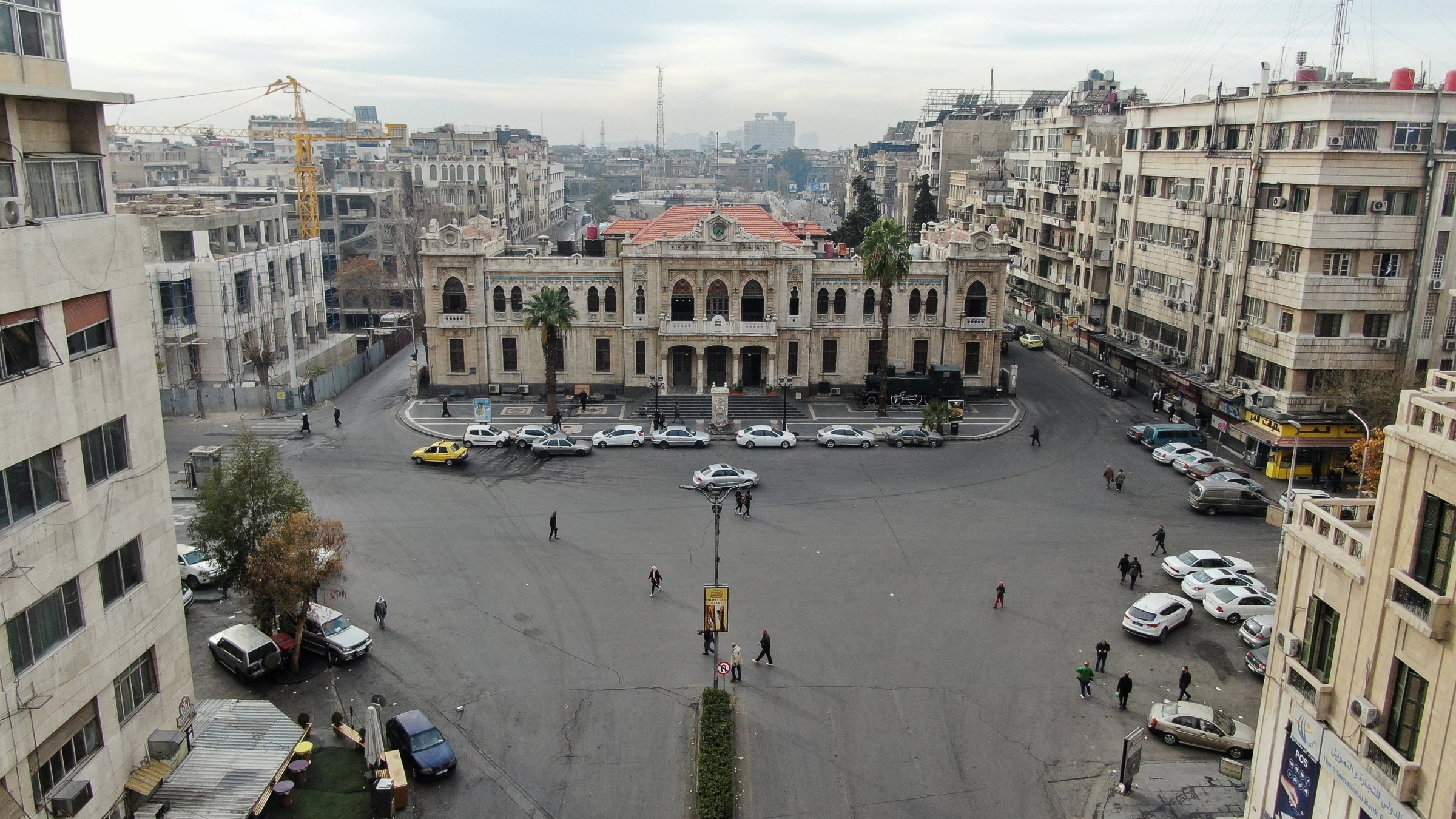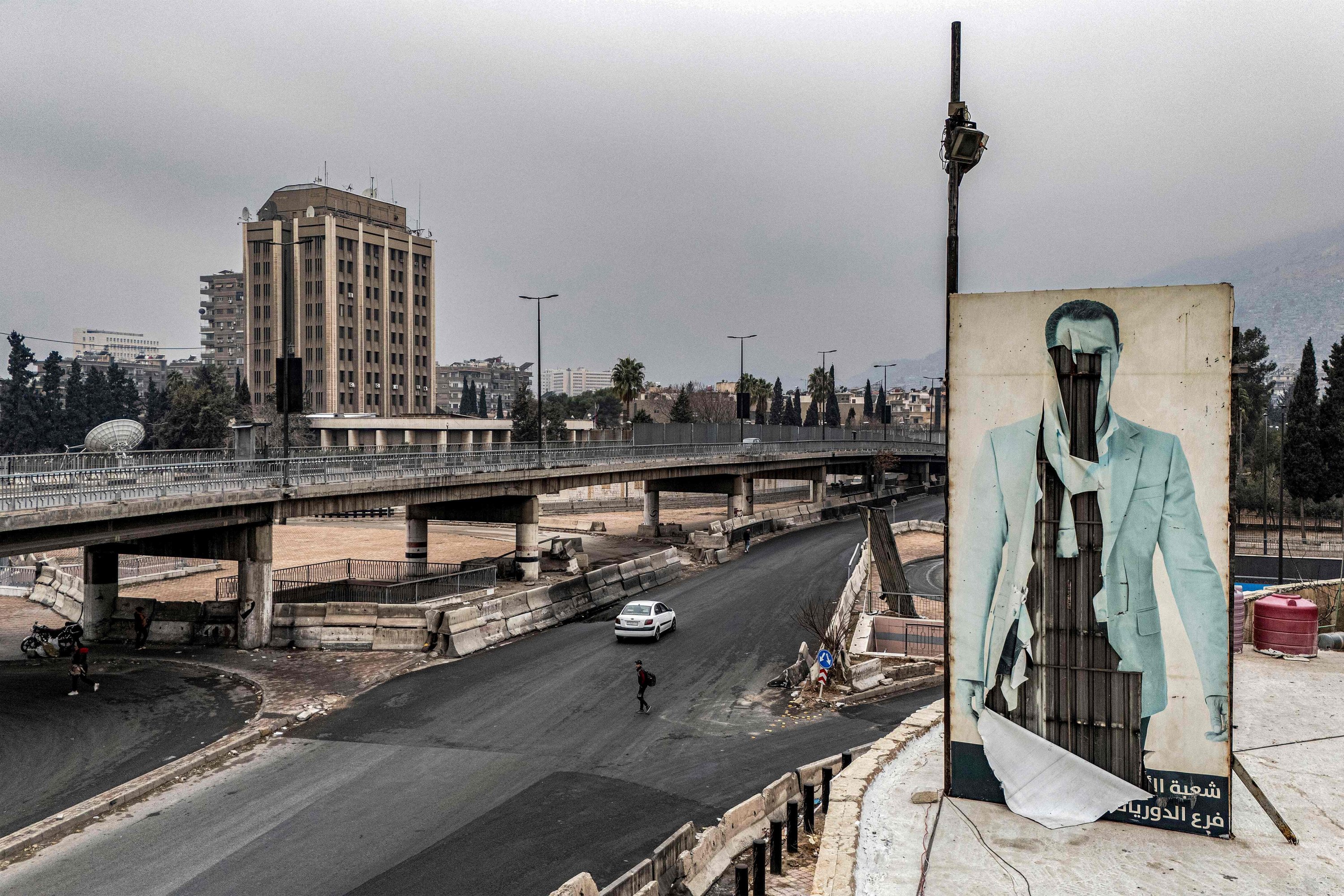Türkiye vowed to extend support in rebuilding Syria following the fall of the regime of Bashar Assad, President Recep Tayyip Erdoğan announced on Wednesday.
Addressing lawmakers from his ruling Justice and Development Party (AK Party) in Parliament, Erdoğan said Ankara will offer all-encompassing support to Syria’s new administration as the country rebuilds.
His remarks followed the comments by energy and transportation ministers, who in recent days announced action plans, including a Syria visit by an Energy Ministry delegation and assisting the country in restoring key infrastructure including airports and railways.
Syria needs everything to start a new beginning, Transportation and Infrastructure Minister Abdulkadir Uraloğlu said on Tuesday, adding that Türkiye has prepared an action plan for repairing and rebuilding the war-torn country’s airports, bridges, roads and railways.
Türkiye is expected to play a pivotal role in rebuilding Syria’s economy following the fall of the Assad regime earlier this month, experts opined, while representatives of some Turkish sectors anticipate they could leverage their expertise and contribute to employment and production in the war-torn country.
In line with this, Turkish authorities have also signaled readiness for involvement in reconstruction, including in energy and key infrastructure in its southern neighbor, deprived by years of conflict.
Türkiye has recently reopened its embassy in Damascus and its intelligence chief and foreign minister have met with Syria’s new de-facto leader Ahmed al-Sharaa recently.
Airports
Syria has five airports, two of which have recently become operational, Damascus and Aleppo, Uraloğlu said at a news conference in Ankara, noting that the airports still require significant improvements.
Damascus Airport handled approximately 100,000 trips last year, while Aleppo managed between 50,000 and 60,000, Uraloğlu said on Tuesday, adding that a Turkish team checked airports and discovered that there is no radar system.
“There is an air radar application that we use on our mobile phones. Imagine, they were trying to manage it from that mobile phone application,” he said.
Computers from the 1990s are still used at these airports, and there are no proper X-ray devices, detectors or anything else, he explained.
He added that the runways are seriously aging and that the first flight to Damascus and Aleppo was entirely on the pilots’ initiative, in other words, without any system and under visual conditions.
“So our friends made a determination, and then we have put forward an action plan,” he said.
The minister said Türkiye will take action to revive Damascus Airport in the first phase.
“There are parts of the railways that go from Türkiye to Hejaz; they have not been operated for a long time. We will quickly identify them and take a position to ensure the integrity of the railroad up to Damascus in the first place,” he said.
Hejaz Railway
“We sent passenger trains there in 2009-2010. There is infrastructure there, but only in certain regions,” the minister said.
The approximately 1,750-kilometer (1,085-mile) Hejaz Railway was built by Ottoman Sultan Abdulhamid II to connect Istanbul, Mecca, Medina, Yemen and Damascus. It began operating in 1908.
The railway, which contributed to the region’s development, was built for religious, military and political purposes.
The line had been providing Hajj pilgrims with a safe route.
M4, M5 highways
Pointing to counterterrorism operations, he said, “Whether in the internal dynamics in Syria, the M4 and the M5 highways have always been discussed.”
“In other words, a highway can have such an impact on the politics of a country.”
Türkiye is dealing with these roads, but Ankara has already done a lot of work, particularly on highways, the minister said.
The M4 highway connects the capital, Damascus, and Aleppo, while the M5 highway links the Mediterranean city of Latakia to Aleppo.
The 450-kilometer M5 is a strategic highway in southern Syria, close to the borders with Jordan and Türkiye.
The highway links the country’s largest provinces: Damascus, Homs, Hama, Aleppo and Idlib.
It was a vital economic route for the country, particularly connecting the industrial hub Aleppo.
The 120-kilometer M4 also runs through the M5. Half of the M4 spent a long time in the war zone.
“I can say that we have done a lot of work there and repaired many destroyed bridges,” the Turkish minister underlined.
Importance of Mediterranean
The minister also said Syria is 20-30 years behind Türkiye in terms of communication, noting that cell phones are not used at many points.
Uraloğlu pledged that, “We will make the necessary determinations about these, and we will try to realize them as the ministry, as I said; everything is needed there.”
He said even though Syria was not able to print its own money, Russia has been printing for it.
“Right now, many countries in Africa are in a similar position; some developed countries are printing their money. At this point, Türkiye will support this.”
He acknowledged Syria’s strategic location as a gateway to the Mediterranean but noted that its ports are underdeveloped.
“We will most likely make determined efforts to make specific investments there.”
“Of course, a Maritime Jurisdiction Agreement, probably, so that we can protect our interests in the Eastern Mediterranean and the Blue Homeland; our relevant institutions will take a position there when the day comes.”
Türkiye had previously prepared a similar agreement with Libya.
The delimitation of maritime jurisdiction areas is critical given the presence of hydrocarbon resources in the Eastern Mediterranean, as well as the presence of Syria, Lebanon, Israel, Egypt, Libya, Greece, the Turkish Republic of Northern Cyprus (TRNC) and the Greek Cypriot administration, in addition to Türkiye.
Although the TRNC issue remains unresolved, the Greek Cypriots signed maritime boundary agreements with Egypt in 2003, Lebanon in 2007 and Israel in 2010, disregarding the equal rights of the Turkish Cypriots.
The Agreement on the Delimitation of Maritime Jurisdiction in the Mediterranean, signed on Nov. 27, 2019, by Türkiye and Libya, is significant because it protects the two countries’ rights in the Eastern Mediterranean.
Trade history
“In terms of trade,” the minister said, Damascus and Syria have a history. “We will do our best to revive it.”
Stating that such an agreement will increase the effectiveness and competence of both Syria and Türkiye, he said, “At the point of oil and hydrocarbon exploration there, taking into account international law, we will share or expand all kinds of authority as two countries.”
“Of course, first of all, an authority needs to be established there. Look, the salaries of the civil servants there need to be paid.”
He also said there is a plan for armed groups to lay down their arms.
“This will definitely be on the agenda, but it would not be very accurate to say that it is today’s agenda.”
Development Road
Referring to the Iraq-Türkiye Development Road project, the minister said, “The first phase of Iraq’s Fav Port will be commissioned in 2025, and port activities will begin.”
The Development Road is an important trade route that would connect Iraq and Türkiye via railways, roads, ports and cities.
The 1,200-kilometer railway and highway will connect the Great Faw Port, which aims to be the largest port in the Middle East.
With the Iraqi Silk Road, an alternative route to the Suez Canal is being built to facilitate faster and more efficient trade.
“We can say that the project is more or less finished.”

Only negotiations between the regional administration and the central government about where it will pass in northern Iraq are ongoing, he stated, adding, “We are currently following up.”
The minister explained that the issue is being discussed from management to financing and operations.
“There are things that need to be done in Türkiye; we are planning them. Approximately 2,092 kilometers of railway will pass through Türkiye,” he said.
Approximately 1,900 kilometers of highway will also be part of the project, he added.


